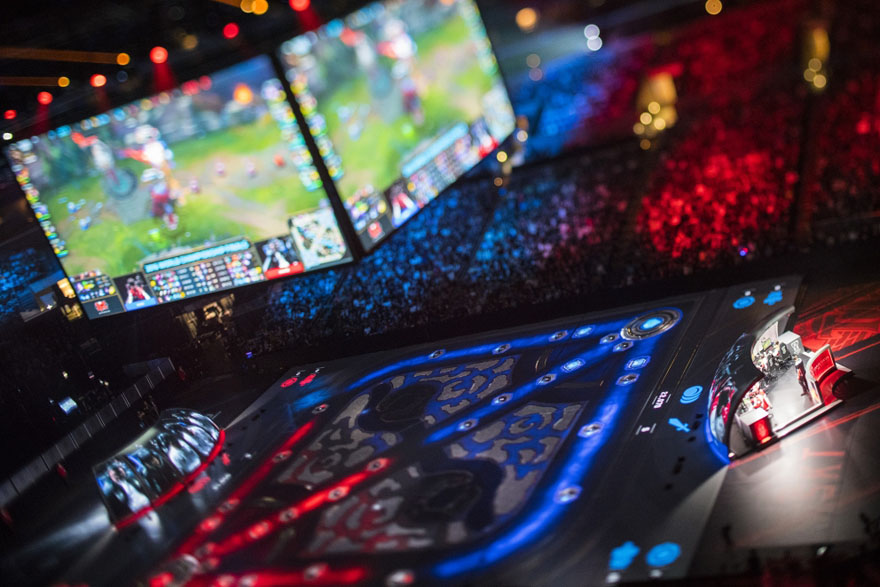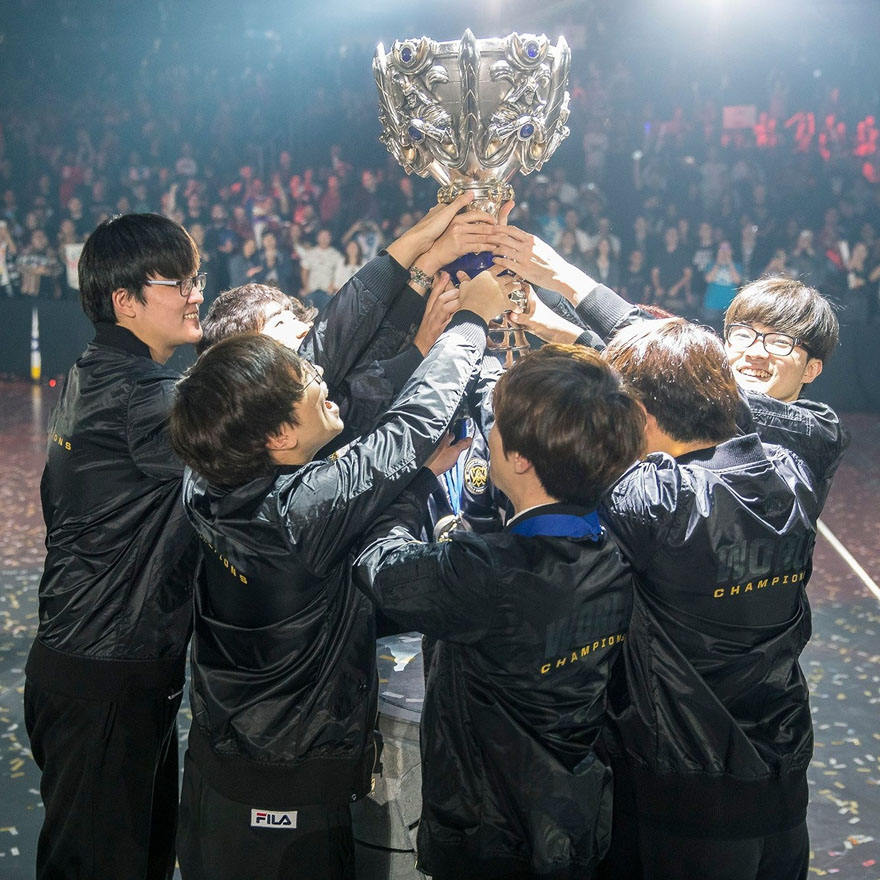Sign up for trending news and first dibs
Community Makes Esports Boom
Community Makes Esports Boom
What effect does today’s gaming community have on the future of esports, and how do you, as a consumer, make a difference?
By Stephanie Tan

The whole esports experience is driven by the strength of its community (Source: LoL Esports)
The concept of community is by no means a new one. Human beings have relied on the safety and security that communities or social units provide, whether as hunter-gatherers in the stone age or leaving your dirty dishes for your roommate to handle when her OCD kicks in. (Thanks, Sarah!)
Technology has shrunk the distance between nations, and our communities have become less dependent on distance or locality. Video games are no different. What was once an escapism technique for kids has ballooned into a multi-billion dollar industry; its global market estimated to be worth almost $100 billion dollars in 2016.
It comes as no surprise then, that companies are looking at gamers and taking their demands more and more seriously. Ranging from mobile apps to highly competitive first person shooters, video games are here to stay – but only so far as the community and fanbase choose to.
More gamers
The Entertainment Software Association in America reported that there was a frequent gamer in 63% of U.S. households and that half of the total number of respondents were familiar with esports. Just think back to your last family gathering, or imagine the coming Christmas dinner (for all aspiring clairvoyants out there), and I’m sure you can find a gamer or two hiding in your family tree.
According to the same report, in the U.S. alone, consumers spent $23.5 billion on the gaming industry in 2015. And in the U.S., esports has become somewhat of a “big thing”.

Team SK Telecom T1 wins the 2016 World Championships (Source: LoL Eports)
North America hosted the 2016 World Championships for League of Legends this year, boasting a prize pool of USD$5,070,000. Fans contributed a total of USD$2,940,000 – more than the contribution from the actual tournament organizers (Riot) themselves. Similarly, the prize pool for the annual DOTA 2 tournament known as The International has repeatedly exploded past the USD$10 million mark for the past three years due to their extensive fan-base, hitting USD$20 million this year. Fans can dictate how profitable esports are, just by taking part in in-game events and purchases.
But it isn’t just direct profits that affect prize pools.
More and more companies are taking notice of the vast reach that video games have. There has been an increase in sponsored gaming tournaments and events. Computer and technology companies like MSI, Razer and Steelseries are understandable sponsors and hosts for such events, but even F&B giants like Monster or Doritos want a piece of the gaming pie. Nissan sponsors a League of Legends team in the U.S. and some fitness companies like Gamma Labs have professional gamers or streamers posing alongside their MMA athletes. Gaming has become a(n almost) legitimate occupation now, as long as you’re the top in the region or entertaining to watch on stream.
But how does it work?
The more people are interested and involved in the gaming community, the more funding there will be in esports. It’s all a matter of supply and demand. You, as the consumer, have a direct hand in whether or not esports makes it onto that credit card application form as an occupation.
It’s not just about donations or tips to streamers, where you directly credit your hard earned pay for excellent entertainment value, or how big the prize pool for the next international tournament is going to be. The larger the community in a certain game, the more corporations are willing to invest in said game. We’ve seen time and time again, large companies willing to invest in a gaming house, or a range of computer and tech equipment, or even a full time salary for competitive gaming teams. Their sponsorship not only improves their standing with the team’s fans, but also with the gaming community at large, potentially endearing millions of gamers to them instantly.

So what does this mean for you personally, the consumer, the gamer, the KD-hunting extraordinaire?
When it comes to video games, community makes or breaks the experience. The idea of social entertainment is not a new one – we see it in traditional sports and commonly shared hobbies, but the rise of online social entertainment has exploded over recent years. Prior to the sort of connectivity found with faster internet, and more and more personal computers popping up in homes, video games were limited to the arcade or LAN cafes. Your community was reliant on your area, the friends who frequented the same LAN shop as you or whose friend owned the newest SEGA console at the time.
Now there are million dollar tournaments, regional competitions that you can take part in from the comfort of your own home – You can even play Pokemon with hundreds of other players controlling the same character. (Disclaimer: It takes forever to get anywhere, and you’re going to be wandering the same patch of grass for hours.)
You can directly affect the personal experience of another person’s virgin trip into video games, and if that doesn’t fill you with excitement, dread, or fuel your thirst for mischief, I don’t know what will.
If we can unite as a community and gamer nation, throwing aside the PC/Console Master Race arguments for a moment, and bring more interest to video games as a whole, we may just be able to see esports explode as an actual industry for everyone who has an interest in it.
So, the next time you’re tempted to troll someone online, or get frustrated at the n00b on your team that keeps feeding the enemy kills, think about whether you want to be part of the revolution or be one of the few standing against it.
Stephanie Tan plays on the edge of the Straatosphere. She has dabbled in a myriad of hobbies and hasn’t quite got the self-control to say no to the next new adventure. Despite having left a little piece of her heart in all the things she’s had the fortune of trying, her true love of martial arts, video games and food have finally won. Secretly, she hopes to build a world better than the one she came in to, but is willing to settle for learning her family’s secret babi buah keluak recipe.
Read More: Singapore’s eSports Scene Just Got Bigger, Here’s Why
TAGS
Tags:









